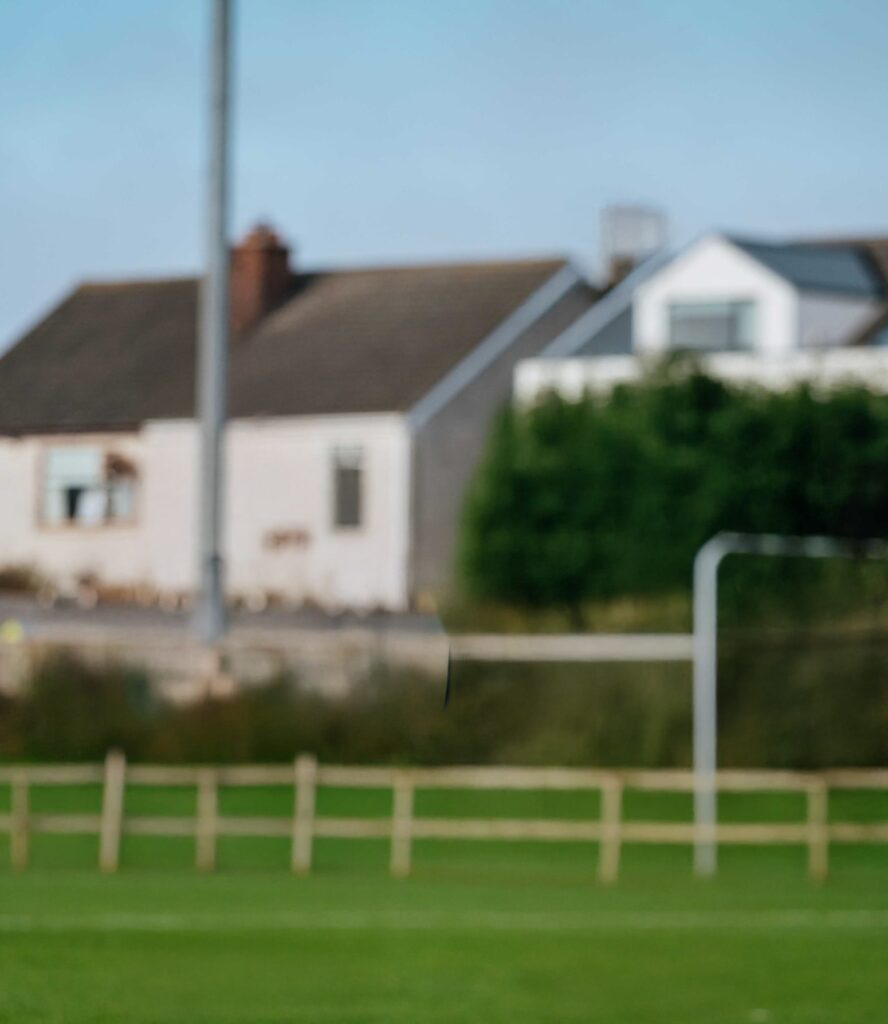
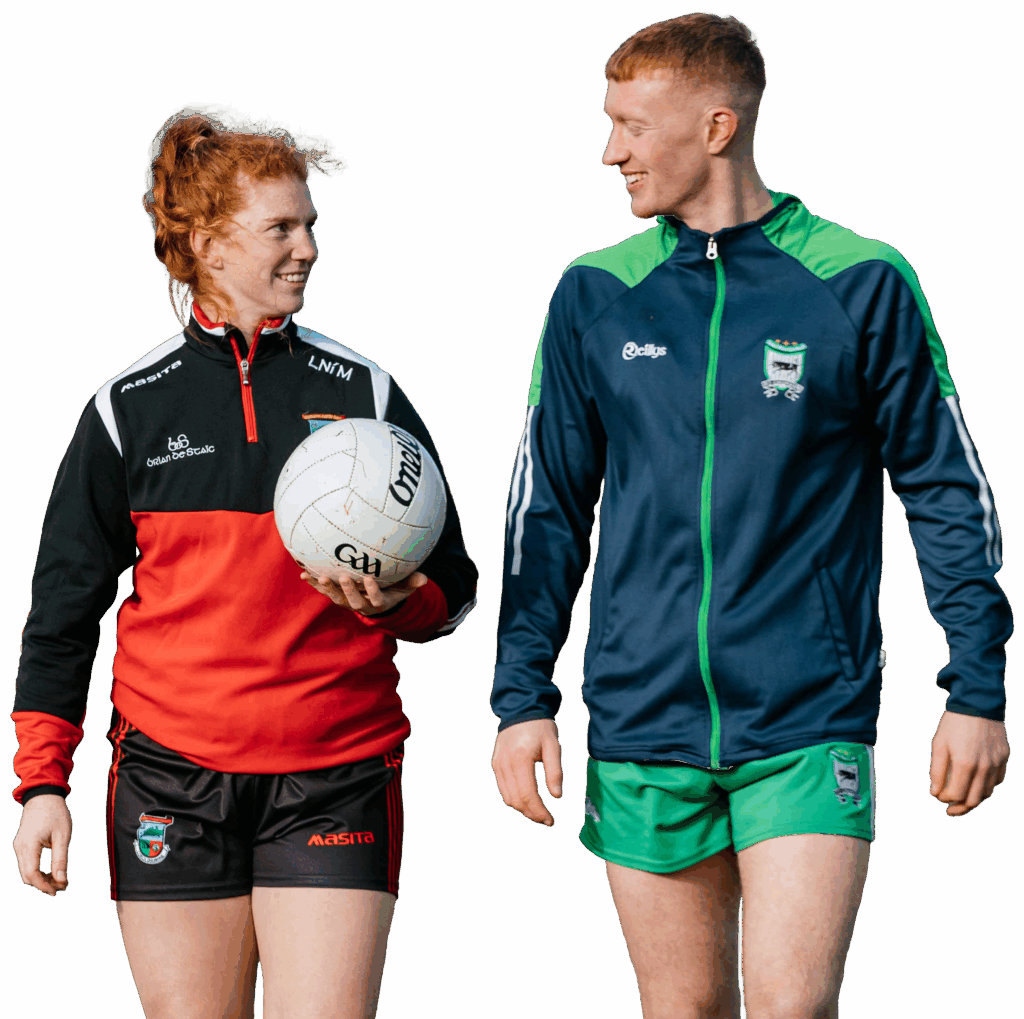
What is
gamechanger?
The Game Changer programme is using the positive influence of Gaelic Games to tackle one of the most serious issues facing our society today – Domestic, Sexual and Gender-based Violence. Game Changer seeks to provide everyone with the tools and knowledge they need to challenge harmful attitudes, norms and behaviours. Together we can build safer and more inclusive communities where everyone can live a life free from domestic, sexual and gender-based violence.
Game Changer is a partnership between Ruhama, White Ribbon Ireland and the GAA, supported by the LGFA and Camogie Associations. Funding for the programme has been made available by Cuan under the aegis of the Department of Justice.
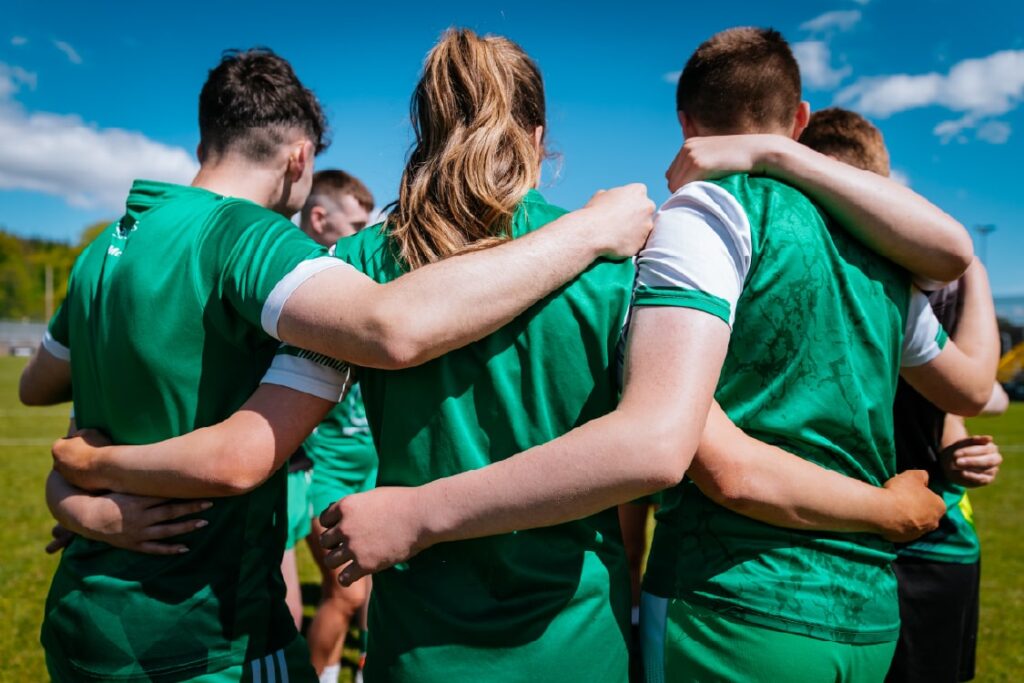

OUR VALUES:
RESPECT
COMMUNITY
LEADERSHIP
What is gender-based violence?
*Content warning: this section describes gender-based violence. Victims of gender-based violence can avail of the support services listed.*
sexual Harassment
Sexual harassment is any form of sexualised behaviour – including ‘jokes’, commentary, catcalling, or unwanted touching – that causes discomfort and creates a hostile environment for the victim. This kind of behaviour supports, normalises and helps to perpetuate gender-based violence.
Gender-based violence
Gender-based violence is violence against a person because of that person’s gender, or which affects people of a particular gender disproportionately. The majority of victims of gender-based violence are women and girls, which is why people also use the term ‘violence against women’.
The term gender-based violence recognises that men and boys also experience violence against them because of their gender.
Sexual violence
Sexual violence is defined as any kind of unwanted sexual activity or contact. This can be physical or non-physical, including words or actions, without consent.
Domestic Violence
Domestic violence involves violence that takes place within the family unit, or between romantic partners or former partners. You don’t have to be living with someone to be a victim of domestic abuse. As well as physical violence, domestic violence can include things like emotional abuse, coercive control or financial abuse.
Coercive Control
Coercive control is sometimes a feature of domestic abuse. This is an ongoing pattern of controlling and threatening behaviour by a partner or ex-partner. This can include attempts to control your everyday life, your finances or your online activity.
Intimate Image Abuse
Intimate image abuse involves sharing or threatening to share an intimate image of a person without their consent. This is sometimes called ‘image-based sexual abuse’, and this is now a crime in Ireland under Coco’s Law.
Why is it necessary to talk about Pornography?
Research has shown a link between pornography and gender-based violence. For example, a 2022 study by Women’s Aid found that 63% of Irish people believe that pornography leads to increased sexual violence in society, with 65% believing that it reduces men’s respect for women and 57% believing that it increases inequality between men and women. 81% of young people (aged 18-25) agree that pornography increases men’s interest in trying rough or violent sex.
What is sexual exploitation?
Sexual exploitation is when someone abuses their more powerful position (e.g. being older, having more status or money, or being in a trusted position) to persuade or force someone in a more vulnerable position to comply with their sexual demands. This can include exchanging sex for money, shelter, drugs or any other commodity.
RESOURCES
be a game changer
- Learn about gender-based violence, its root causes and societal impacts
- Reflect on your own attitudes and actions
- Recognise harmful behaviours
- Call out inappropriate behaviour and remarks (only when it is safe to do so)
- Listen to and support others who speak out
Ground rules for supporting victims/survivors
- Make the person feel safe: focus on them, not the incident, not who was involved and also not on yourself and your own reaction. You will be able to process your emotions later.
- Listen actively: make the person feel believed, repeat back to them what they have said, gently encourage them to tell you more if they feel like it. Don’t force your advice on them.
- Don't judge: don’t ask prying questions that query their behaviour, don’t tell them how they should have acted or how they should change their behaviour in the future.
- Give back power and control - let them decide the next steps: a negative interaction can be very damaging to the person’s sense of self. It is important to make the person feel in control of themselves, given that autonomy is what was taken from them in the incident.
- Signpost to appropriate services: our support services tab can help you.
Intervening Safely
If you witness an incident of violence or harassment, ask yourself the following questions
- Is it safe for me to intervene?
- Is there anyone who could help me?
- Are there any authority figures available who could intervene?
After assessing the situation you have 5 simple options to choose from
- Direct – Speak up clearly (e.g. "That's not ok, stop it")
- Distract – Interrupt or defuse the situation with a distraction
- Delegate – Seek help from someone in authority (e.g. coach, mentor)
- Delay – If immediate action is not possible or safe, check in with the person affected afterwards to offer support and let them know they are not alone
- Document – If appropriate and safe, record or write down details of the incident. This can be useful evidence later, but always prioritise safety and respect the wishes of the person affected (victim-survivor)
Post intervention
- Take care of yourself emotionally
- Talk to someone you trust if needed
- Acknowledge your courage
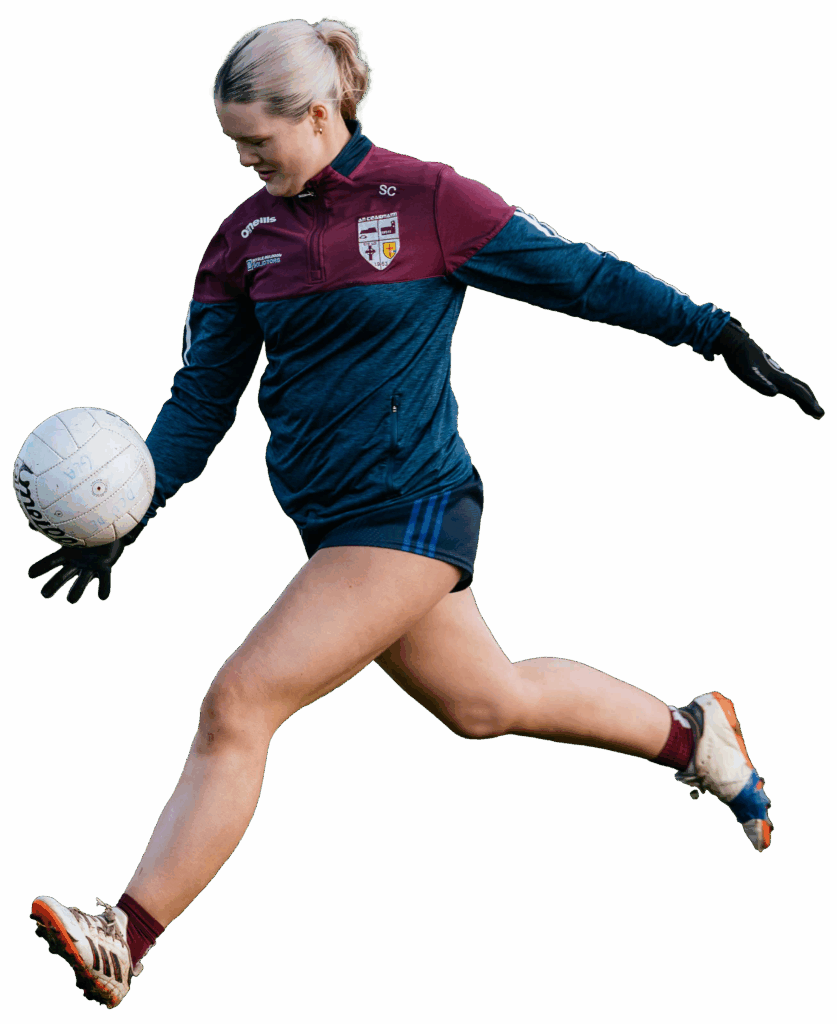
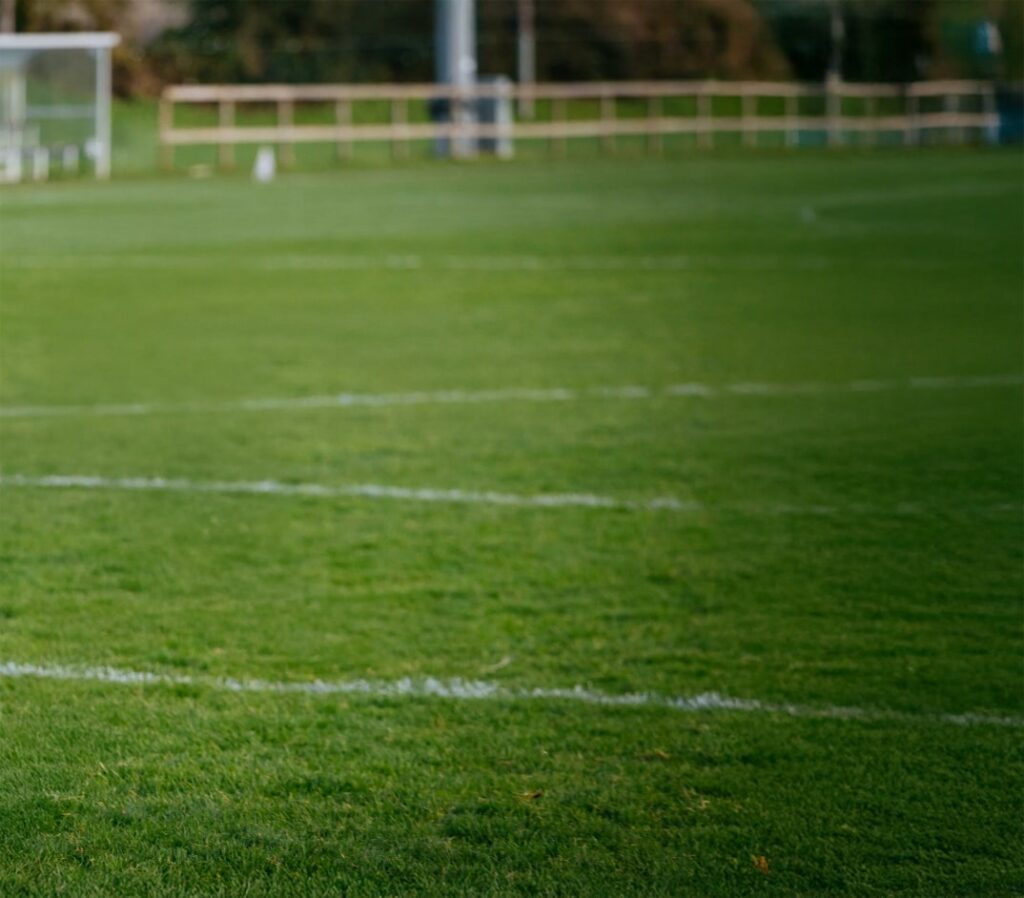
our player
ambassadors
"Men need to do better. They shouldn't remain silent"
Oisín Gallen
Donegal Footballer
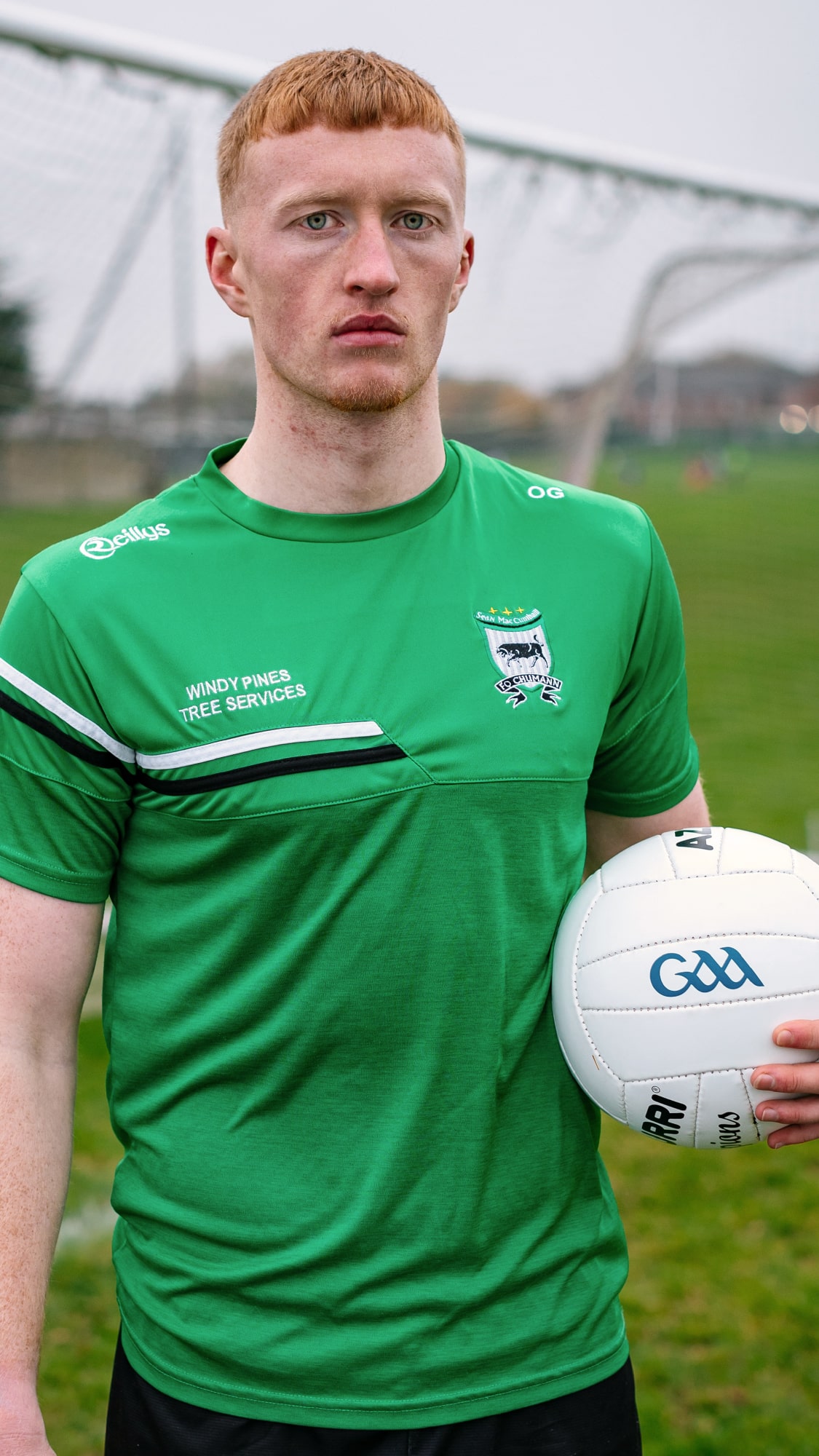
"Equality means we can go out safely by ourselves"
Louise Ní Mhuircheartaigh
Kerry LGFA
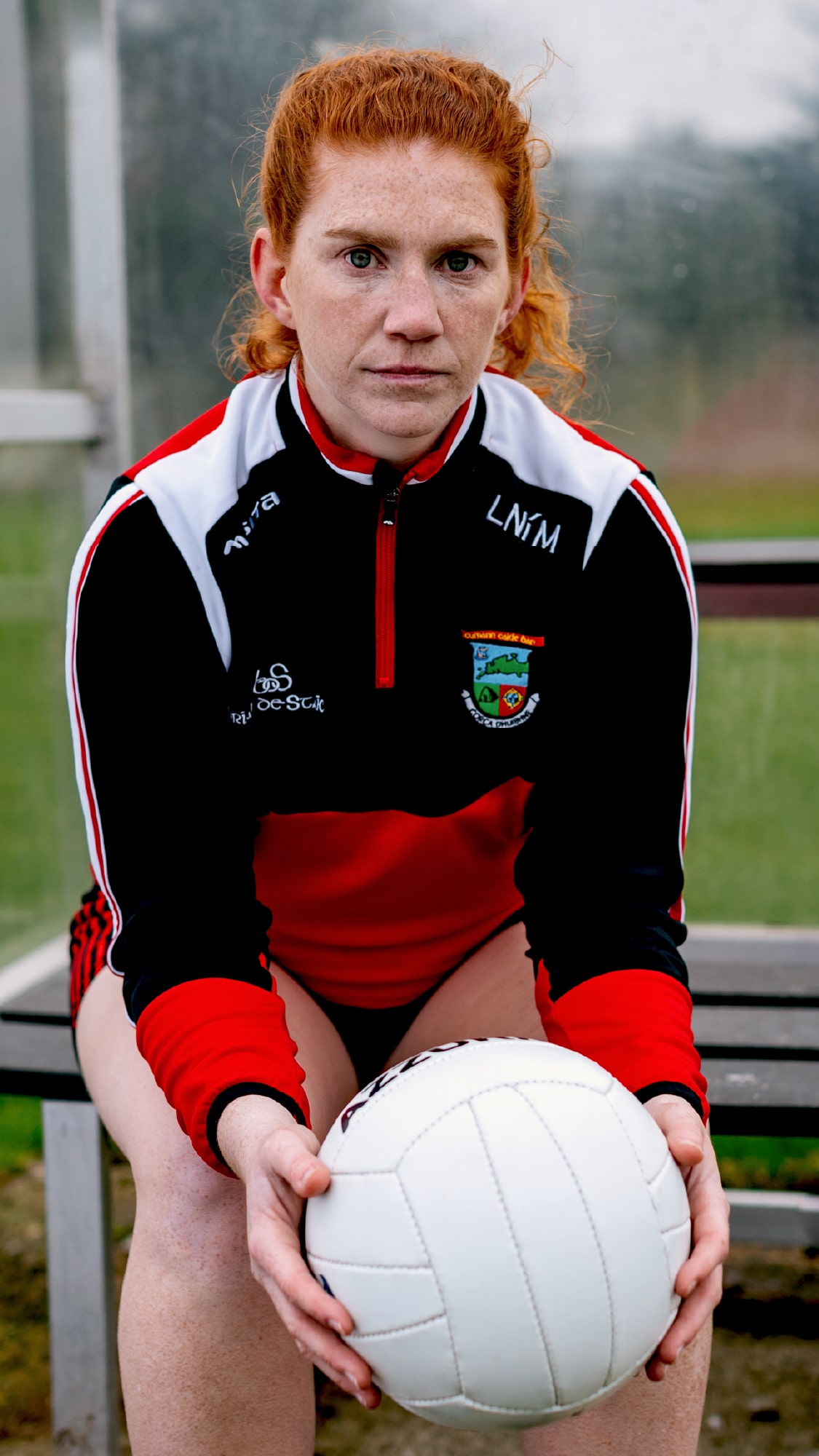
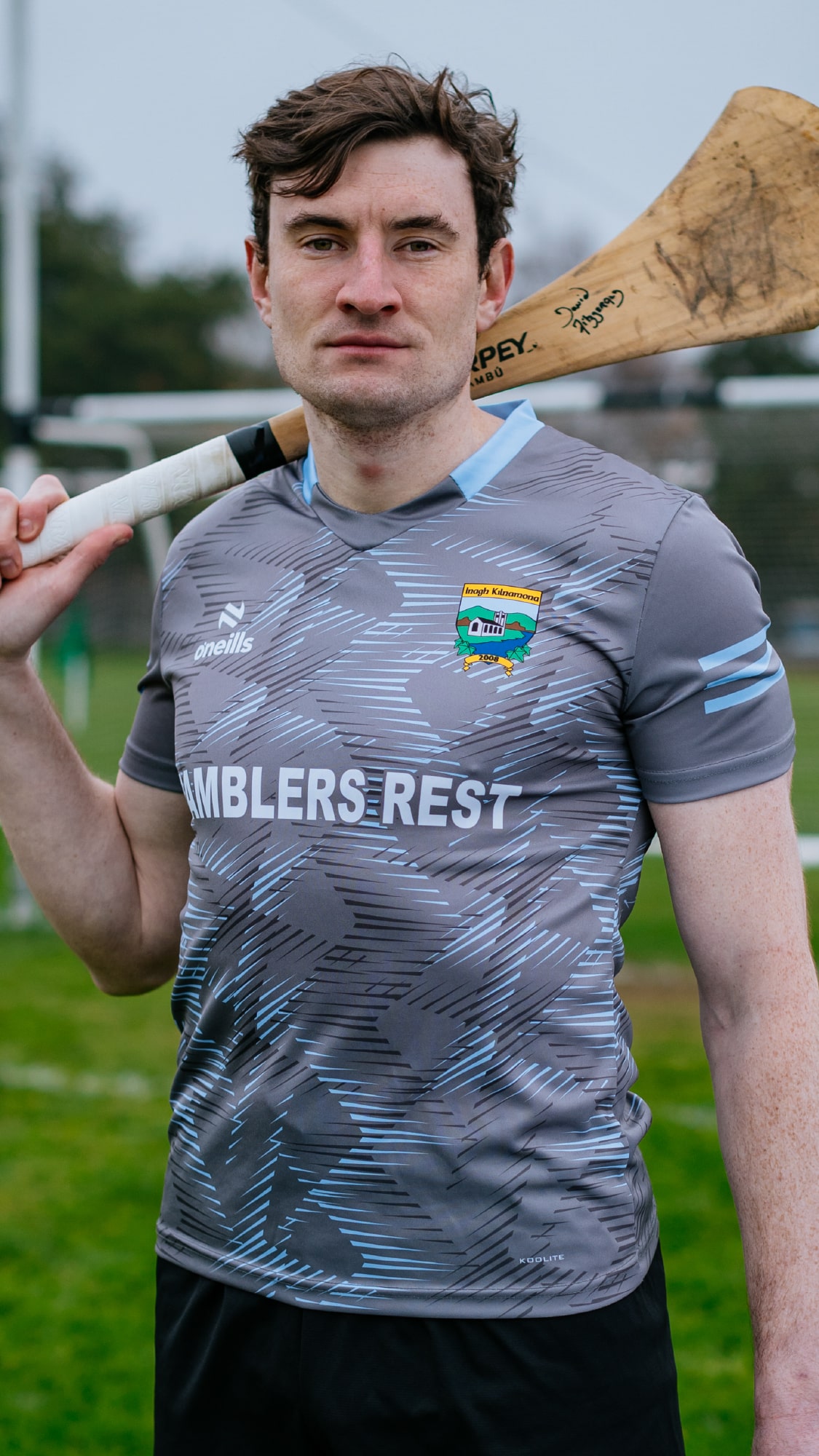
"It's important everyone is treated with respect"
David Fitzgerald
Clare Hurler
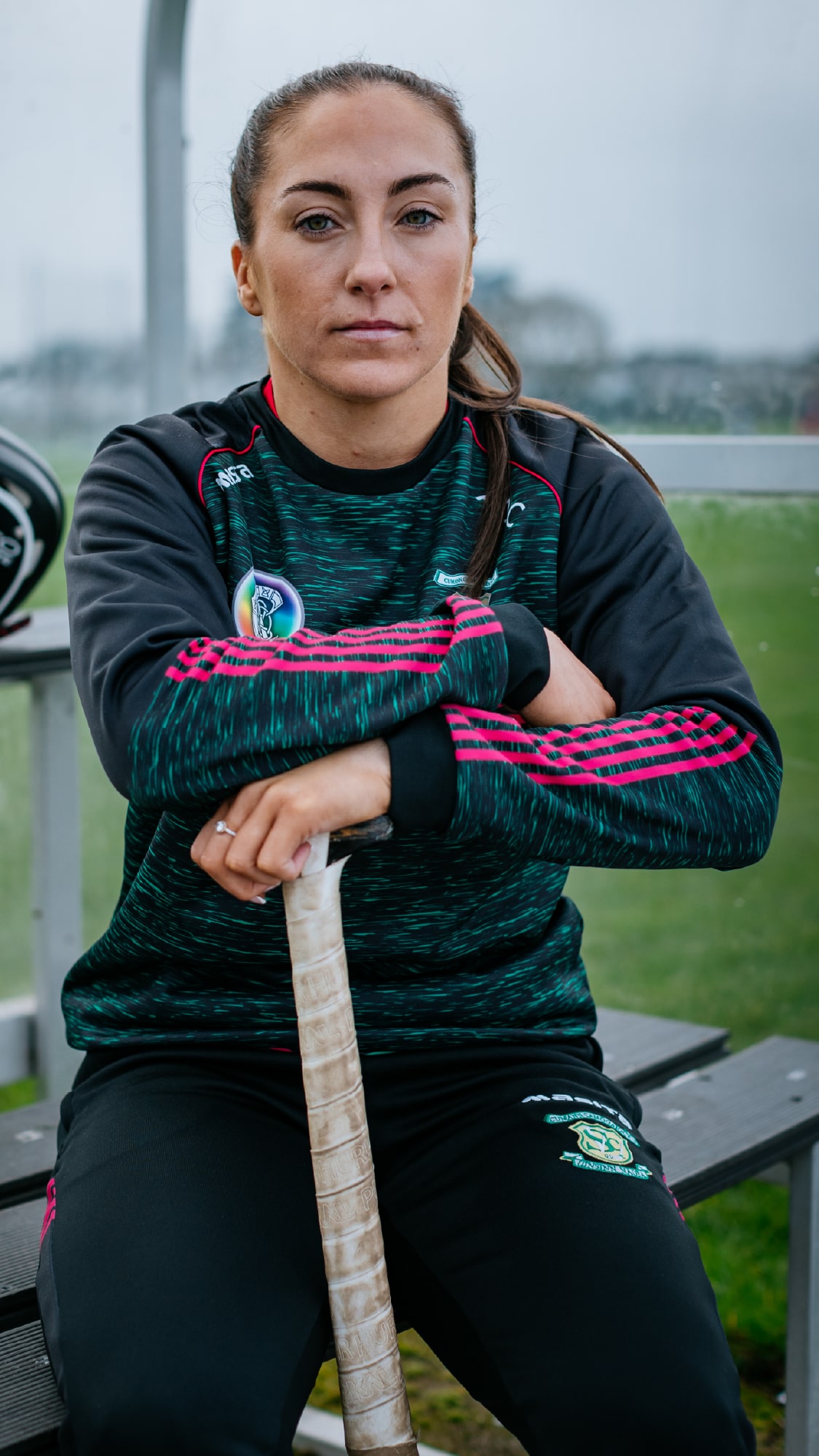
"Women around the country are faced with this day in, day out"
Amy O'Connor
Cork Camogie
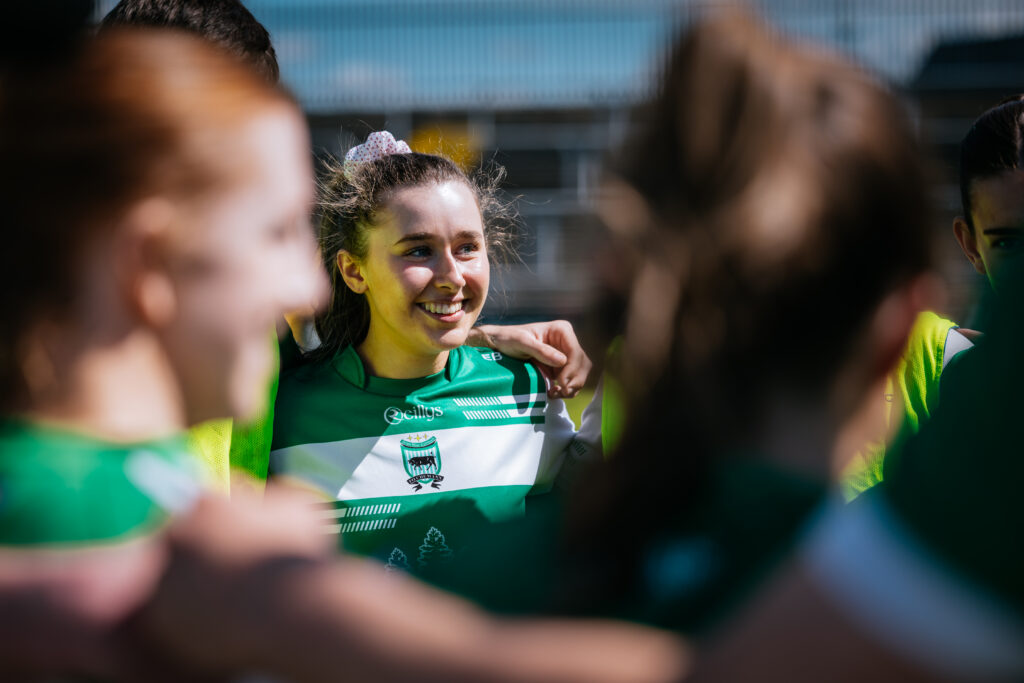
take our e-learning modules
Designed for players aged 14 and over as well as coaches, club officials and community organisers, our e-learning modules are a free and accessible way to learn how you can be a Game Changer in your local club.
support services
if you are in ireland:
An Garda Síochána
An Garda Síochána is available to help and support anyone who is a victim of domestic or sexual violence. If you are subjected to this kind of violence or abuse, or if you know someone who is, you should contact your local Garda station, or in an emergency call 999/112.
Women’s Aid 24hr National Freephone Helpline
The Women’s Aid 24-hour National Freephone Helpline is a free, non-judgmental, and confidential service that offers support to women subjected to domestic abuse including coercive control. This includes emotional, physical, sexual, or economic abuse by a current or former partner.
Tel: 1800 341 900
Email: helpline@womensaid.ie
Male Advice Line
The Men’s Development Network has a dedicated Male Advice Line that offers free, confidential advice and support to male victims of domestic violence and abuse over the phone. The organisation also has a perpetrators programme to support men to end their violent or abusive behaviour and become non-violent and respectful within their intimate partner relationships.
Tel: 1800-816588
Ruhama
Ruhama offers free and confidential support to women impacted by prostitution and victims of human trafficking at any time in their lives.
Tel: 1800 02 02 02
Free text ‘REACH’ to 50100
Dublin Rape Crisis Centre
Anyone affected by rape, sexual assault or other forms of sexual violence can call the National Rape Crisis Helpline, a free and confidential listening and support service run by Dublin Rape Crisis Centre. Deaf or hard of hearing callers can text for support via 086 823 8443.
Tel: 1800 778888
Email: counselling@rcc.ie
Hotline.ie
If an intimate image or video of you has been shared without your consent, Hotline.ie can help with reporting and removing the content online and, in some cases, liaising with An Garda Síochána, should you wish for it to be investigated by Gardaí.
Tel: +353 86 8116273
Email: general.enquiries@hotline.ie
Alwayshere.ie
if you are in Northern ireland:
Police Service of Northern Ireland
The PSNI can protect, help and support anybody who is suffering from domestic abuse. If you or someone else are in immediate danger or you need support right away, call 999.
24 Hour Domestic and Sexual Abuse Helpline
Available to anyone who has concerns about domestic or sexual abuse, now or in the past. It is open to all women and men affected by domestic and sexual violence.
Tel: 0808 802 1414
Women’s Aid Federation Northern Ireland
Women’s Aid is the voluntary organisation in Northern Ireland addressing domestic abuse and providing services for women and children. If you are experiencing abuse and need support or information, contact your local Women’s Aid group Monday to Friday from 9am to 5pm.
Website: https://www.womensaidni.org/
Men’s Advisory Project
MAP provides counselling services for men experiencing domestic abuse. Support and counselling services are also available to men who have previously left a violent or abusive relationship and who are still experiencing the effects.
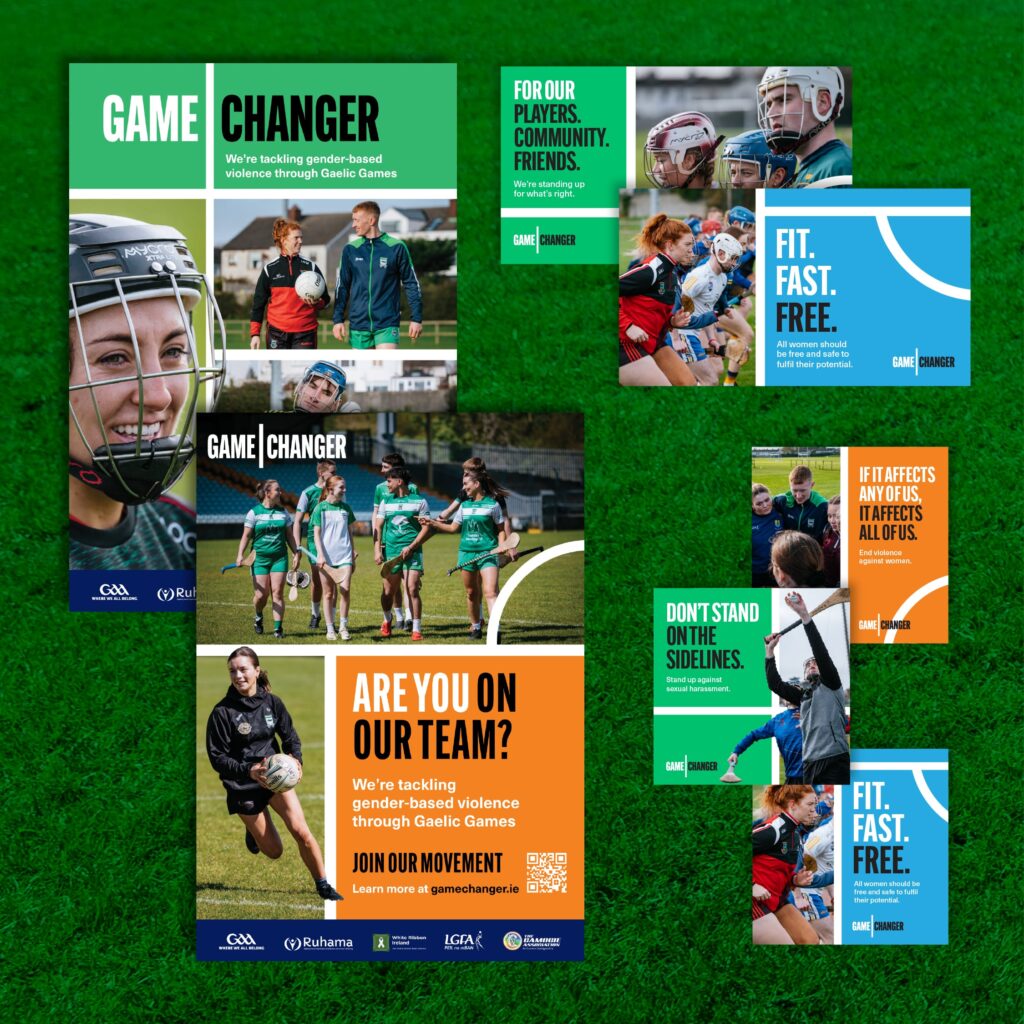
join our movement
Spread the word around your club with these A2 posters and social media pack.
